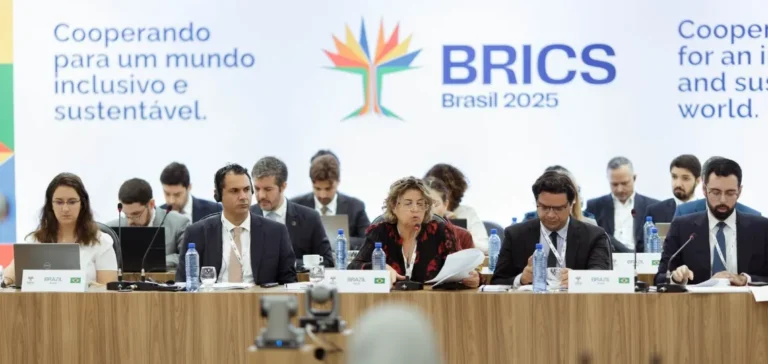The BRICS nations, comprising Brazil, Russia, India, China, and South Africa, have officially adopted a new joint climate finance framework. This mechanism primarily aims to enhance access to financial resources for emerging countries, enabling them to meet international climate requirements. The initiative comes just months ahead of the official launch of the Tropical Forest Protection Fund led by Brazil, scheduled for introduction at the upcoming United Nations Climate Change Conference, COP30. Within this context, BRICS leaders have also expressed firm opposition to carbon border taxes, known as Carbon Border Adjustment Mechanisms (CBAM).
A Direct Criticism of the European CBAM
CBAM is a measure introduced by the European Union that imposes a tax on imported products from countries lacking an equivalent carbon pricing system. Currently, affected sectors include steel, aluminum, cement, fertilizers, electricity, and hydrogen. Several nations, including the United Kingdom, Norway, and potentially Australia, plan to implement their own similar mechanisms starting from 2027. However, emerging and developing countries criticize these initiatives, emphasizing the economic risks posed to their exports to Europe, a strategic market for their industrial economies.
The BRICS criticism centers on the argument that these unilateral mechanisms might serve as disguised protectionist instruments, restricting their capacity to freely invest in their own energy and industrial transitions. The group emphasized the potential impacts of these taxes on their economies, especially within a global context where access to climate finance remains challenging for many countries. BRICS leaders explicitly denounce these initiatives as contradictory to the principles of fair international trade.
New Climate Financing Mechanisms
As part of their new strategy, BRICS countries have also announced plans to create a dedicated partnership focused on carbon markets, clearly aimed at strengthening the technical and financial capacities of their members. This partnership specifically seeks to foster knowledge exchange and sharing of experiences regarding carbon emissions management and regulation. Eventually, this partnership could pave the way for partial harmonization of national approaches, facilitating internal trade within the group and enhancing their influence in international climate negotiations.
Brazil, which will host COP30 in Belém this coming November, plays a central role in this new dynamic. The establishment of the Tropical Forest Forever Facility, supported by other BRICS members, proposes a financial mechanism based on performance-based payments related to forest conservation outcomes. This fund aims to mobilize long-term financing, directly involving local and indigenous communities in the practical management of funded projects. The Brazilian government views this approach as an instrument to expand sustainable investment opportunities while reinforcing its international diplomatic stance.
A Constantly Evolving Climate Context
This new BRICS framework comes shortly after announcements made during COP29 in Baku, where participating countries agreed to triple climate finance directed toward vulnerable nations. An agreement was also reached regarding the basic rules of a global carbon market. Nevertheless, concern persists among many emerging economies about potential adverse effects of measures like the European CBAM on their future economic development.
At the same time, the global carbon market continues to evolve, with significant disparities in emission permit prices from one region to another. For example, China’s market, which currently primarily covers the energy sector, plans to gradually integrate several major industrial sectors—including steelmaking, petrochemicals, and civil aviation—by the end of the decade. Other emerging economies such as India, Mexico, Argentina, and Indonesia are also working to strengthen their own emissions trading systems, illustrating the growing dynamic of national carbon markets beyond the European Union.






















